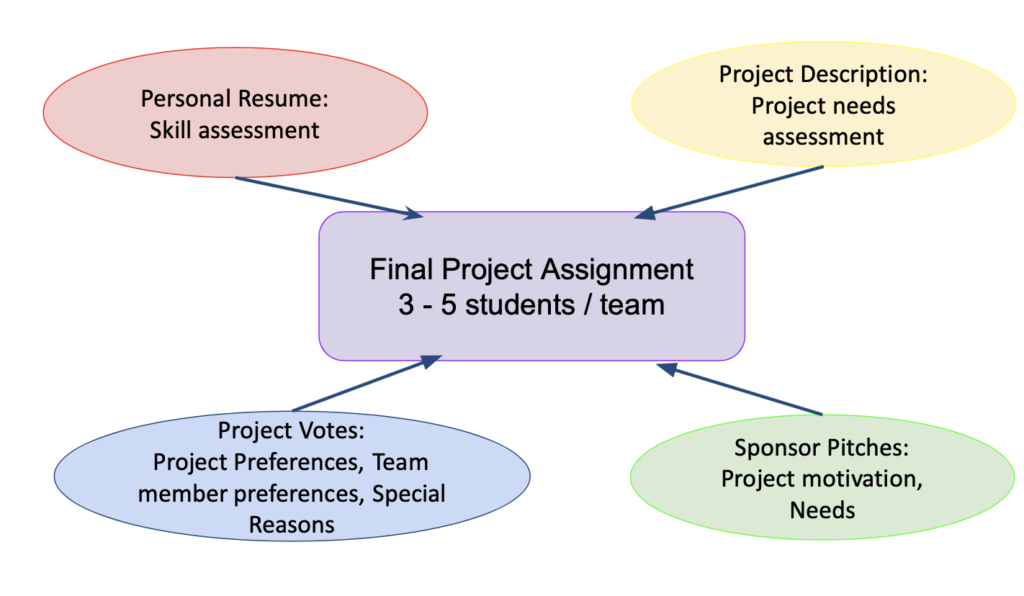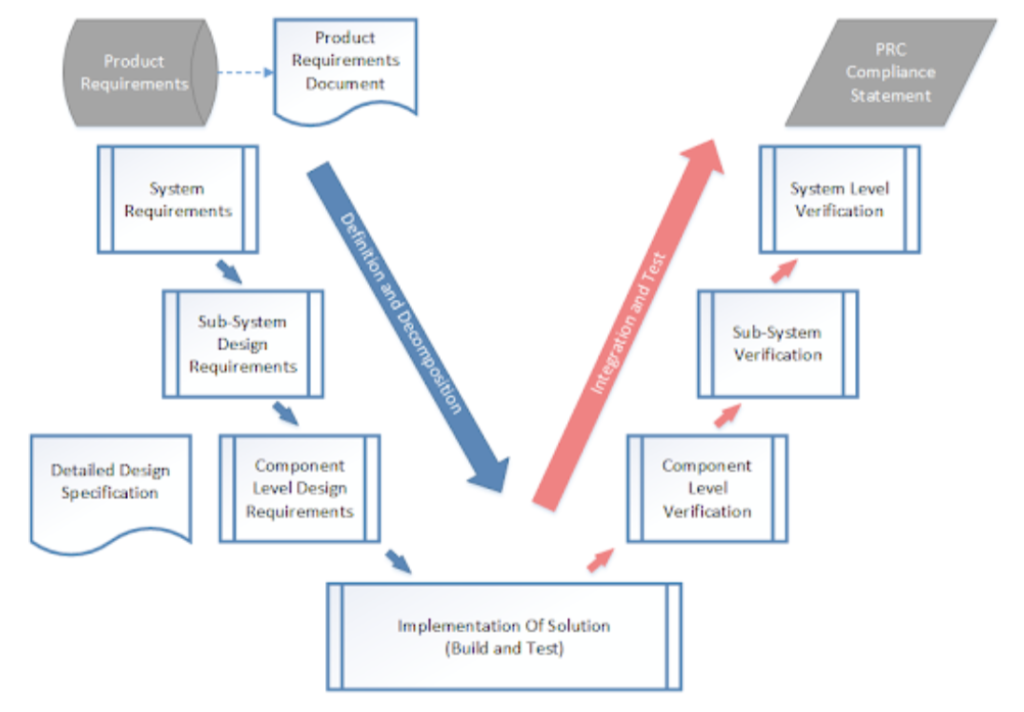Sponsor Orientation
Thank you for choosing to sponsor a project with the NC State Department of Electrical and Computer Engineering Senior Design program. Below you will find information detailing everything you should know about being a sponsor! Please fill out the Sponsor Information form so we can collect some basic information.
Thank you for choosing to sponsor a project with the NC State Department of Electrical and Computer Engineering Senior Design program. Below you will find information detailing everything you should know about being a sponsor! Please fill out the Sponsor Information form so we can collect some basic information.
The project submission procedure consists of the Sponsor Information Form, Detailed Slide Presentation and the Pitch Presentation. The guidelines can be of help as you navigate these.
Senior Design Deliverables: Fall 2025
The dates below are to give you a guide as to what the students are working towards. The students have all of these dates and are responsible for managing these deliverables, you do not need to help them with these unless the students request your input.
| Date | Deliverable | Description | Sponsor Expectations |
| ECE484 | Fall 2025 | ||
| 09/12 | Product Requirements | Create Product Requirements, constraints required features, and customer requirements. | Students schedule meeting with sponsor to ask questions to clarify requirement. Sponsor reviews requirements. |
| 09/12 | Market research/Technology Research | Investigate and document the relevant market and existing technology. | Help the team understand the market for the product, share any market data you may have. Help them understand the technologies which might be relevant to the project and point them to the right examples |
| 09/26 | System Architecture Document | Develop and document high-level system picture | Review with the team, this document is a good way to make sure you and the students have a the same view of the project. |
| 10/06-10/10 | Preliminary Design Review* | The team finishes the Preliminary Design for the Product including possible solutions/needed parts and components/ preliminary test plan/trade-off analysis. The team presents a mock prototype to demonstrate the complete look/feel/usability of the said product and the project plan. |
Attend the team review, take notes and have a debrief in your next meeting with the students. |
| 10/27-10/31 | Status Review 1 | High level overview of project status and project management. | You are welcome to ask the students to run through this with you. This is a good way to formalize your mutual understanding of the project. |
| 11/07 | Project Pitch Peer Review | Peer review assignment for all teams to record their project pitch in 3 minutes and upload it to a peer review folder. Each team will be assigned a certain number of reviews to be watched and to give feedback. | Watch the project pitch video. |
| 11/17-11/21 | Status Review 2 and Tech Demo* | High level overview of project status and project management and preliminary prototype functional demonstration and core technical design decisions made by the team. | Attend the team review, take notes and have a debrief in your next meeting with the students. |
| 11/28 | End of Semester Project Report | Project status report to sponsors | Read report and alerts instructors if students view of the project is not aligned with sponsors view. |
| ECE485 | Spring 2026 (approx) | ||
| 2/02-2/06 | Critical Design Review* | The team presents a final design review of the project and design ideas before entering final implementation and testing phase. The major design trade-off decisions and detailed design has been completed are presented with no design ambiguity. A demo to demonstrate basic functionality pertaining to the final design to demonstrate the system can meet project requirements | Attend the team review, take notes and have a debrief in your next meeting with the students. |
| 2/23-2/27 | Program Review 1 | High level overview of project status and project management. | You are welcome to ask the students to run through this with you. This is a good way to formalize your mutual understanding of the project. |
| 3/23-3/27 | Program Review 2 | High level overview of project status and project management. | You are welcome to ask the students to run through this with you. This is a good way to formalize your mutual understanding of the project. |
| 3/9-3/13 | Alpha Demo* | Demonstration of working functionality of each subsystem. | Attend the team review, take notes and have a debrief in your next meeting with the students. |
| 4/27-4/31 | Post Design Day Review | High level overview of project status and project management. | You are welcome to ask the students to run through this with you. This is a good way to formalize your mutual understanding of the project. |
| 4/06-4/09 | Beta Demo* | Demonstration of working functionality of complete integrated system. MSE/ECE teams’ final integrated demonstration as defined. | Attend the team review, take notes and have a debrief in your next meeting with the students. |
| 4/24 | Closing meetings and sponsor handover | Team wraps up the designs and hands them over to the sponsor with explanation, future needs, demonstrations and more. | Make sure the final deliverables from the team are acceptable. This is your chance to make sure you are receiving the documentation you need to continue the project. |
| 4/17 | Design Day* | The team finishes the functional prototype and testing to prove the feasibility of the project. (485 only) | Attend and enjoy the team’s accomplishment. |
Matching Students to Projects

Mentoring Balance
Within the Senior Design program we work to create a balance that enables students to reach their full potential. Providing too little or too much support can hinder the learning experiences of the students.
Mentoring Tips
- Let students try to work out problems and complete tasks by themselves
- Ask questions that encourage students to think through their answers
- Appreciate student’s creative ideas and approaches while reminding them of project constraints
Basics
- Make sure emails from the students do not end up in your spam/junk email box
- You will receive your first email from the new student team on the Tuesday after the pitch presentations. Please look out for it and respond quickly, the students are on a tight deadline to set up the first meetings and it creates a lot of unnecessary stress if you don’t respond quickly.
- Aim to respond to project team emails within 48hrs
- Set the example on how to maintain the meeting schedule. The students are busy also.
- Enjoy!! Watching a team develop and learn from your mentorship is priceless.
Engagement
- Recommend to have regular meetings for 30-60mins every week. Once the project is under control and the students have found their groove it can be reduced to every second week.
- Force the students to run the meetings (help them be organized for it)
- You may wish to coach the Team Leader before or after the meeting for a few minutes to give them feedback.
- Ask them what assignments they have coming up, this will help you understand where they are in the Product Development process.
Sponsor/Mentor/Technical Advisor
- For most projects the sponsor, mentor and technical advisor are all the same person
- Some projects the sponsor does not have the technical skills to mentor the project team in technical areas or the sponsor is highly technical and does not have the management skills to manage the project. In these cases we find a mentor to assist and compliment the sponsor. The sponsor and mentor can work out the best way to compliment each other’s skills.
- Technical Advisors are people who have technical skills on a very specific aspect of the project and are only required to periodically advise the project. They typically do not attend all project meetings.
Agreements
- If you disclosed the agreement before the students selected your project you may ask the student to enter into an agreement between you (or your entity) and the student. The most common are Confidentiality/NDA and IP Assignment agreements. Neither the University or the facility may be parties to the agreements nor can they give you advice or provide the agreements. You may not ask the students to sign an agreement mid way through the project without them knowing about it before they selected the project.
Reviews and Assessments
- Your teams should invite you to their reviews
- You are encouraged to attend to support your team, see what they present and to see the instructor feedback. This information can be used to help your team during your team meetings.
- Please respect that this is where the students are being graded, their grade is based on what they say, not what you say.
- If time permits you will be offered an opportunity at the end to share your thoughts and ask questions.
Student Grades
Class assignments graded based on rubric expectations.
Peer team surveys provide comments on peer’s contributions.
Sponsor feedback and professor observation on student skills and management are taken into consideration.
Contact Us
Please contact us any time with any concerns, questions, or other potential ways we can help!
- Prof. Rachana A. Gupta
- Director, ECE Design Center
- 919-515-6919
- ragupta@ncsu.edu
- Prof. Jeremy Edmondson
- Assoc. Director, ECE Design Center
- jedmond2@ncsu.edu

